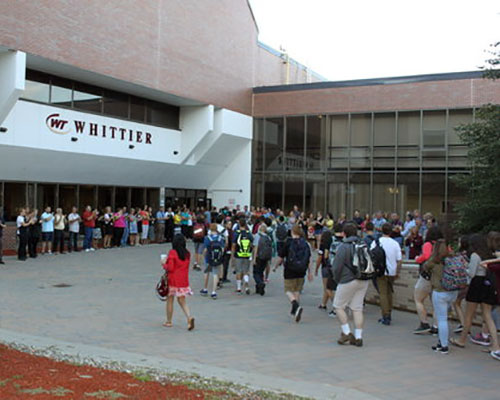Whittier Regional Vocational Technical High School is receiving more than $100,000 to help introduce students to biomedical science/technology professions.
Whittier joins UMass Lowell, Merrimack College, Greater Lawrence Technical High School and other educational institutions in sharing more than $6 million in STEM Equipment and Capital Infrastructure grants from the state-funded Massachusetts Life Sciences Center. Grants were formally awarded Monday at Merrimack College by Travis McCready, the center’s president and CEO.
“The MLSC continues to make major capital investments to support education and training at academic institutions across the entire Commonwealth in order to meet the workforce needs of our state’s fastest-growing industry,” said McCready.
Merrimack College was awarded $500,000 grant to support the development of Merrimack’s Center for Innovation in Science and Engineering. Money also provides programs to train students for work in the life sciences with the purchase of a confocal microscope, an ICP spectrophotometer and a bone densitometer for an interdisciplinary imaging and analytical science laboratory. Merrimack expects a 34 percent increase in life science students over five years.
Greater Lawrence Technical High School is receiving $93,410 for its biotechnology program, providing students with a foundation in lab sciences. The grant also enables the purchase of molecular biology and biomanufacturing equipment for the school’s laboratories.
The largest award—$5 million—went to UMass Lowell to equip its Biomedical Engineering program, training the future medical device industry workforce.
“Investments in the vitality of the Massachusetts workforce are critical to ensuring long-term growth in our economy,” said Governor Charlie Baker. “Our ongoing efforts to deliver a high-quality STEM education to middle- and high-school students, and our focus on delivering impactful workforce training opportunities at community colleges and other institutions of higher education, will allow Massachusetts residents to access quality careers in growing fields, including robotics, advanced manufacturing, healthcare, and biotechnology.”

